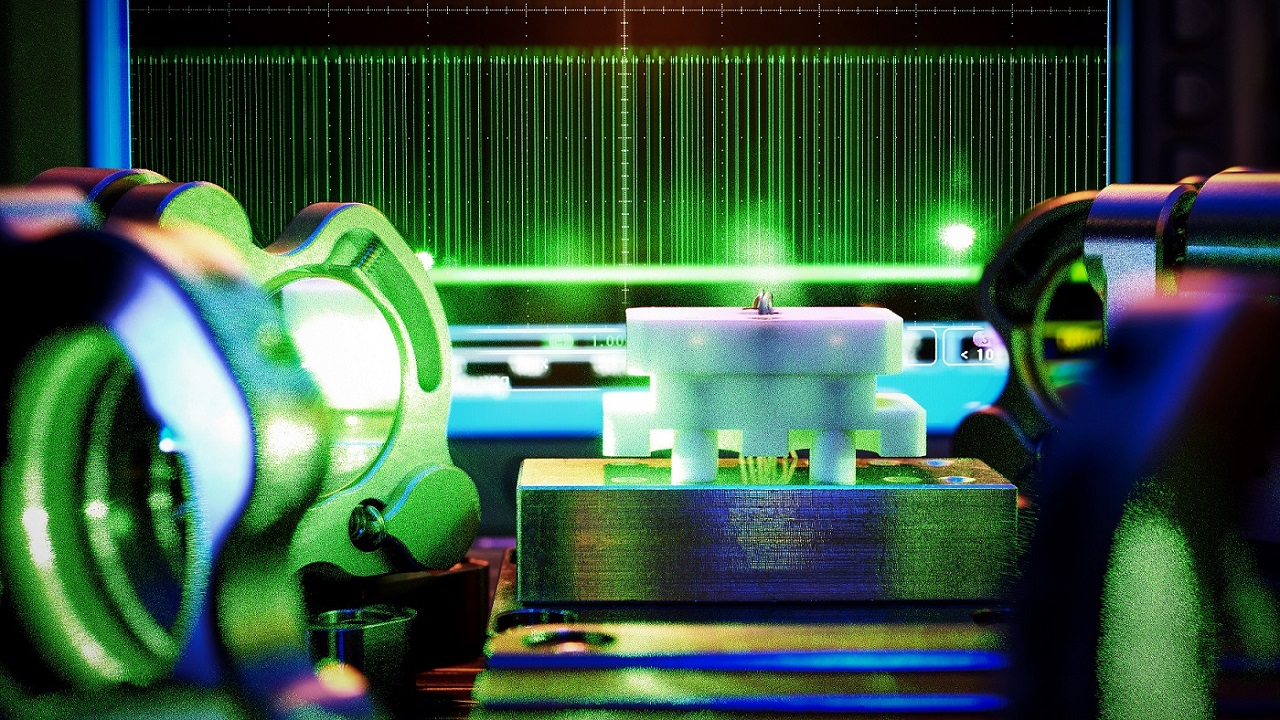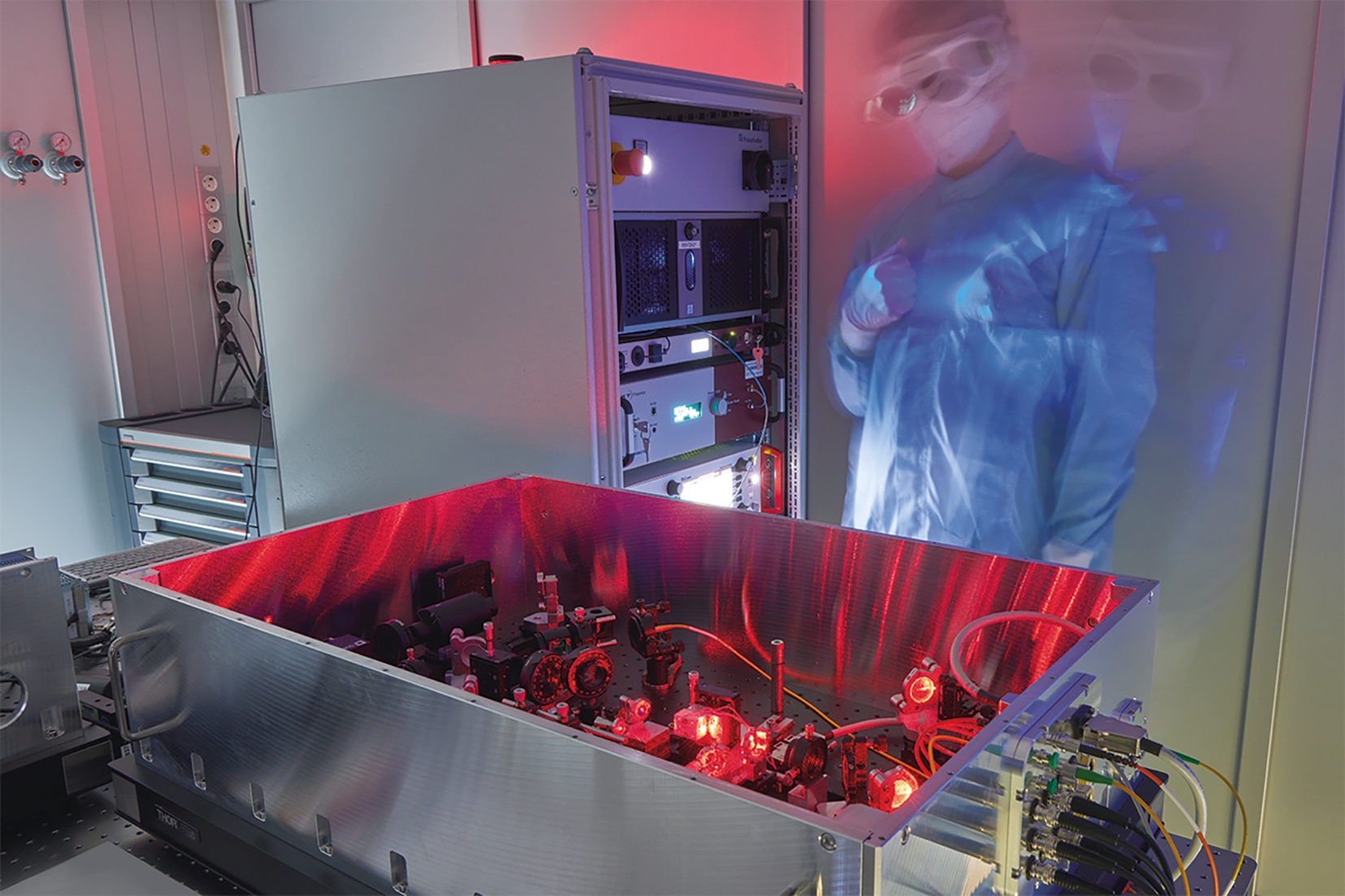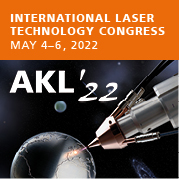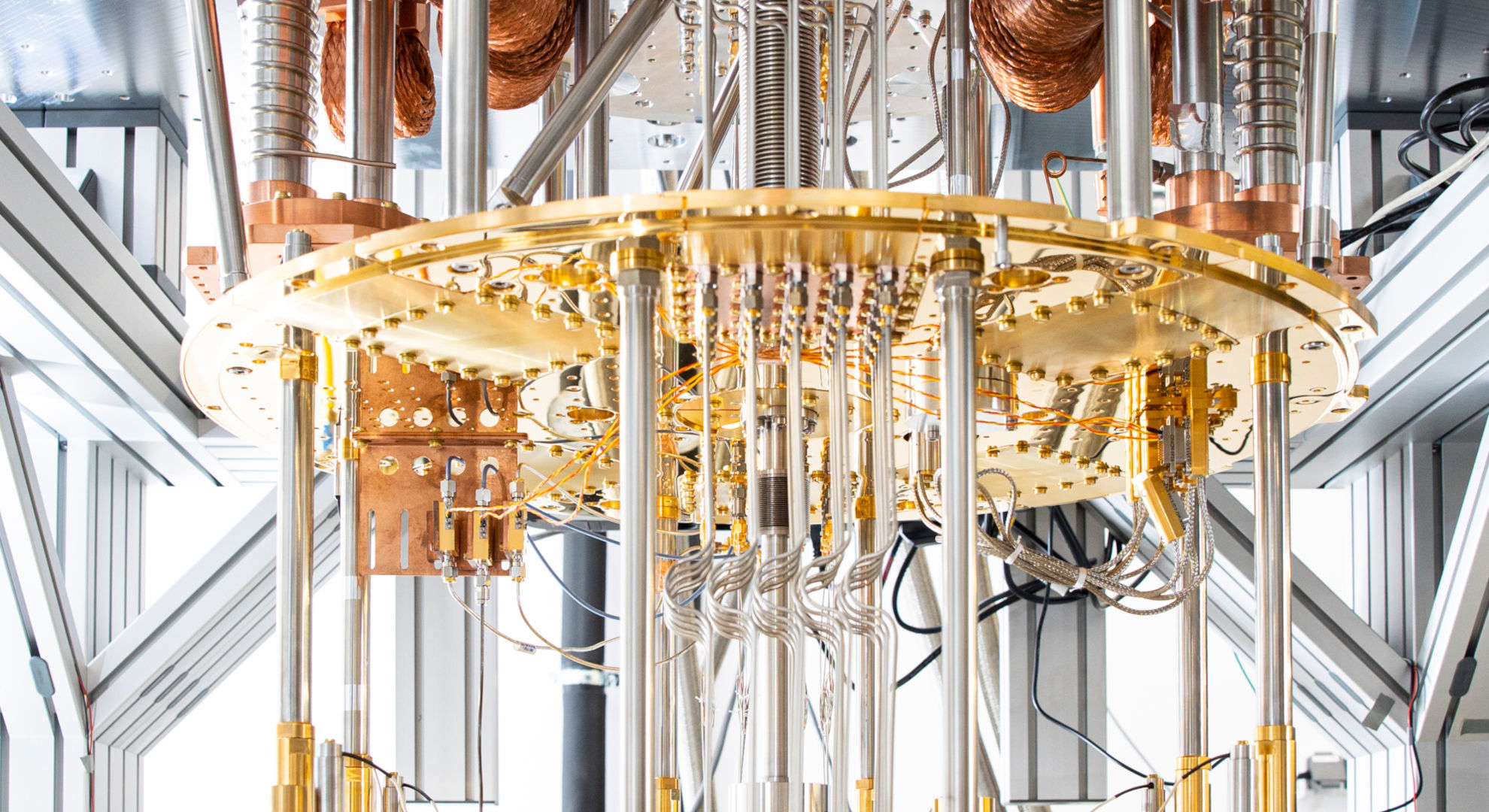
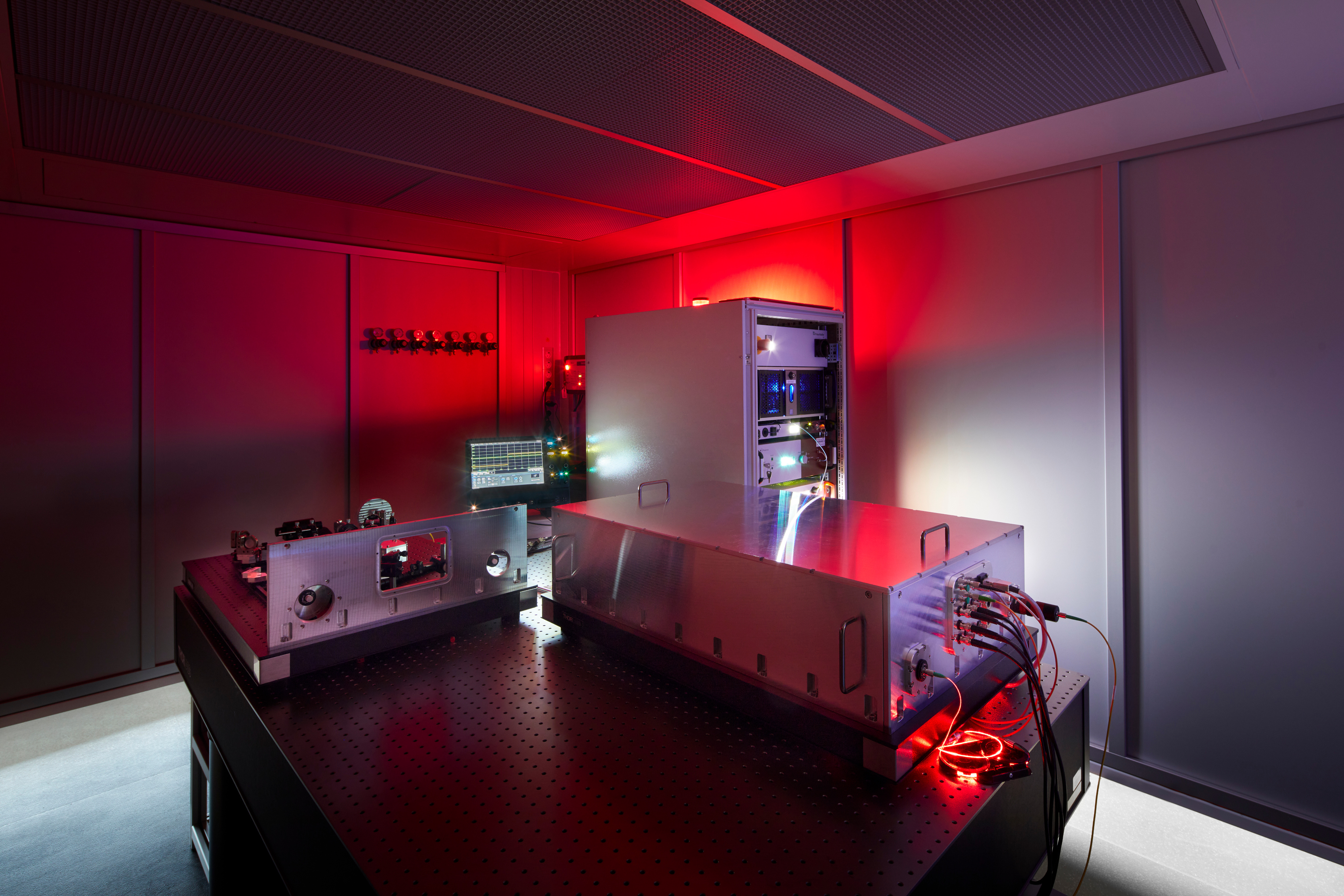
On March 7, 2022, leading universities and research institutions in the state of North Rhine-Westphalia (NRW) gave the starting signal for the competence network "EIN Quantum NRW," initiated by the state government of NRW. In this network, these universities and institutes are pooling their expertise in researching and implementing quantum technologies to help players from industry and science network more effectively, and to create a broad knowledge infrastructure. Also on board is the Fraunhofer-Gesellschaft, which is focusing on technology transfer to industry.
Together with the Fraunhofer Institutes FHR, IAIS, IMS and SCAI located in NRW, the Fraunhofer Institute for Laser Technology ILT and the Research Center Jülich are establishing a Center of Quantum Science and Engineering (CQSE) in the Rhineland region. The partners are thus spurring on the establishment of a high-growth innovation ecosystem for quantum technologies in NRW and forming a relevant pillar for practice-oriented research and development in Germany.
On an international level, the Fraunhofer-Gesellschaft and the Dutch research center QuTech already joined forces in December 2021, signing a Memorandum of Understanding for a close and long-term cooperation in the field of quantum networks. In the run-up to this cooperation, Fraunhofer ILT and QuTech developed a quantum frequency converter with a world record for low noise – a decisive step toward realizing a stable quantum internet. This innovation enables the efficient transfer of quantum information through fiber optic lines already installed by telecommunications service providers: a prerequisite for the rapid networking of quantum computers at different locations. Using this as a basis, the Fraunhofer ILT in Aachen is planning to set up the first German quantum node in a transnational quantum network coordinated by QuTech, which includes the cities of Delft, Leiden, The Hague and Amsterdam.
 Fraunhofer Institute for Laser Technology ILT
Fraunhofer Institute for Laser Technology ILT